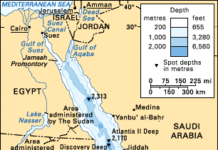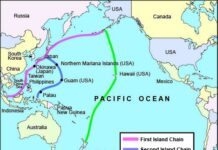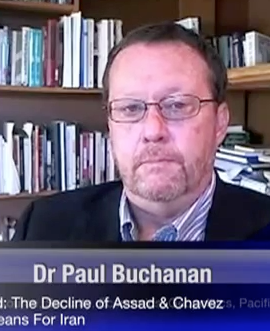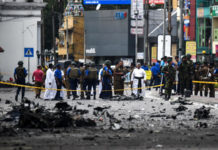
Risk Assessment: Selling sovereignty and declining responsibility. Flags of Convenience in the South Pacific.
Analysis – By Dr Paul G. Buchanan.

It may come as a surprise to some that the BP Deepwater Horizon petroleum derrick in the Gulf of Mexico was classified as a vessel under international maritime law. Such platforms are classified as SOLAS (from the 1974 Convention on Safety of Life At Sea) vessels, in this case a non-passenger vessel of 500 tonnes or more engaged in an international voyage. There are currently 800 SOLAS vessels in operation. These vessels make nearly 6000 ports visits annually. In essence, under the SOLAS Convention and for the purposes of maritime law, the BP Deepwater Horizon and its ilk are considered to be floating barges that are towed to the exploration site and anchored before well drilling commences (the derrick is mostly assembled after anchoring).
 For a vessel to operate in a commercial capacity it needs to be registered by a state, which determines the conditions and regulations governing the operation of said vessel. The BP Deepwater Horizon was registered in the Marshall Islands, a country consisting of two archipelagic island chains populated by 70,000 inhabitants that since 1986 is in a Free Compact Association with the United States. The Marshal Islands are where the Bikini and Enewetak nuclear tests were conducted and is home to the US missile tracking station on the Kwajalein atoll.
For a vessel to operate in a commercial capacity it needs to be registered by a state, which determines the conditions and regulations governing the operation of said vessel. The BP Deepwater Horizon was registered in the Marshall Islands, a country consisting of two archipelagic island chains populated by 70,000 inhabitants that since 1986 is in a Free Compact Association with the United States. The Marshal Islands are where the Bikini and Enewetak nuclear tests were conducted and is home to the US missile tracking station on the Kwajalein atoll.
Ship owning companies seeking to reduce their tax burden and avoid strict regulatory environments in their countries of origin often “flag” their vessels in states with more permissive or business-friendly registration requirements. This gives them flexibility in the operation of their fleets in pursuit of higher profit margins. Such registrations are known as “flags of convenience” (FOCs). In many instances the registration can be done immediately on-line with the payment of a simple fee by credit card.
The cruise ship sector prefers tourist destinations such as the Bahamas or Bermuda to be the flag of choice. For example, Royal Caribbean International’s entire fleet is registered in the Bahamas. Norwegian Cruise Line has ten Bahamian-flagged ships and Carnival Cruise Lines and affiliates (owned by a US company) flags eleven ships in the Bahamas. The Queen Elizabeth 2 and Queen Mary 2 are registered in Bermuda. The two countries are the flag of registry for approximately 70 percent of the world’s cruise ships. The Costa Concordia is registered in Italy. Malta and Greece are also favored cruise ship registries, and the Marshall Island serves as the FOC for the four-vessel fleet of the Pacific-based Oceania Cruises. Private luxury yachts aggregate under the flags of Monaco, the Virgin Islands, the Cayman Islands, Malta and the Turks and Caicos.

Working vessels tend to prefer flags of states not considered to be tourist destinations: Panama (the largest flag of convenience state), Liberia, Greece and increasingly, the Marshall Islands (Marshall Island registered vessels are the fastest growing flag of convenience). As opposed to “closed” or “national” registration states that require vessels to be owned by local companies subject to national laws, these are “open registration” states. Open registration is defined by most of the fleet being foreign owned and minimally taxed (registration fees provided the source of revenue for the registry state) while subject to a very loose regulatory framework with regards to wages, working conditions, vessel seaworthiness and environmental standard compliance, with regulatory enforcement and private risk insurance provided by the industries involved. The industries involved include energy exploration and transport, fisheries, bulk and refrigerated freight, but essentially run the gamut of what can put to sea.
Being landlocked is no impediment to FOC registration. Bolivia has 5 foreign owned vessels under its flag, and Mongolia has 44 foreign owned vessels registered.
The Marshall Islands has over 1500 vessels registered to its flag, making it the seventh largest merchant fleet in the world. Of these, over 1400 are foreign-owned. In an interesting arrangement with the US (from which it receives direct foreign aid amounting to 70 percent of GDP), all vessels flagged in the Marshall Islands can be requisitioned by the US in times of war (in exchange for US defense guarantee). At less than 100 vessels the US merchant marine fleet is dwarfed by that of the Marshall Islands, so the arrangement is prudent if not practical. However, since US companies have 200 vessels registered under the Marshall Islands flag, it also demonstrates that patriotism is not a factor when it comes to commercial considerations with regard to flagging. The reality is that the US subsidizes a country that is in part responsible for the decline of the US merchant marine industry.
Although it is not alone in this, the Marshall Islands is remarkable for its lack of compliance, enforcement or inspection capability. As a micro-state is simply does not have the human or technological capital to effectively enforce common standards on its FOC fleet. That leaves the fleet essentially self-regulated, often on a vessel-by-vessel basis.
According to the CIA World Handbook, the Marshall Islands-flagged fleet consists of a total of 1,593 vessels, including the following types of vessel in its inventory: barge carrier 1, bulk carrier 524, cargo 65, carrier 1, chemical tanker 351, container 226, liquefied gas 88, passenger 7, passenger/cargo 1, petroleum tanker 297, refrigerated cargo 13, roll on/roll off 9, vehicle carrier 10.
The Marshall Islands is not the only Pacific Island Forum member to be classified as a Flag of Convenience (FOC) state. The Cooks Islands, Kiribati, Tuvalu and Vanuatu offer FOCs. Vanuatu has 77 ships in its fleet, of which 72 are foreign owned (39 by Japan). Tuvalu has 80 ships, of which 63 are foreign owned (Tuvalu has just de-registered under US pressure 22 Iranian oil tankers that were re-flagged in order to avoid international sanctions; it also has a past history of flagging North Korean vessels involved in arms and drug smuggling). Kiribati has 43 flagged vessels, 31 of them foreign owned. The Cook Islands has over 50 FOC vessels. Tonga maintained an FOC fleet until 2002, when it halted its FOC registry after one of its flagged ships was found to be smuggling weapons from North Korea.
This highlights the problems of open registry. While many legitimate companies avail themselves of FOCs in order to reduce costs, increase their margins and decrease their liabilities, they are also the flag of choice for arms, drug and people smuggling as well as illegal fisheries. The problem is two-fold: In legitimate industries it allows for a “race to the bottom:” lowering of operational standards across the occupational strata (say, for example, in the inspection regimes of blue water fishing vessels or bulk chemical carriers). To this can be added corruption, whereby loose or nebulous regulatory standards imposed by FOCs are manipulated to the immediate benefit of those charged with enforcing rules and regulations. Worse yet, it facilitates criminal enterprise because of the incentive structures involved, and, as has been mentioned repeatedly in security circles, it makes real the possibility of seaborne unconventional acts of warfare.
Given these obvious flaws in an international regime that allows for state registration granting sovereignty without responsibility, one would assume that there are conventions and protocols to standardize registration and the awarding of flags across nations. The International Transport Workers Federation has lobbied to that effect for some time. But the reality is that there are no universal regulations or protocols governing seafaring registries. Nation-states can choose to be open or closed registry as they see fit. They can choose to model their registration requirements on those of other countries. The industries involved can and have developed their own regulatory standards and codes of conduct. But states or industries do not have an obligation to accept universal norms—their compliance with such is voluntary. Here, sovereignty and self-interest trumps international regulation.
This has very serious implications for the South Pacific. The sale of tokens of sovereignty has been a lucrative source of revenue for Pacific micro-states. The proliferation of Pacific-based FOCs has the potential to surpass these as moneymakers (and indeed, is doing so in the Marshall islands). The real problem is that most of the fishing fleets and mineral, gas and petroleum exploration vessels/rigs operating in the South Pacific are registered under FOCs. This includes vessels working relatively close to shore as well as those operating on the high seas.
Loose regulations minimize legal and commercial risk over the short term. The chain of responsibility is long and compartmentalized so as to minimize the liability exposure of those vested in a FOC operation. Absent a uniform regulatory regime with real enforcement power, commercial interests seek to maximize immediate opportunities within the limits of their capabilities and self-imposed standards of conduct. Data about accidents and other maritime mishaps, particularly on the high seas, suggests that a majority of the vessels involved are registered under FOCs. That makes sense if for no other reason then the fact that FOCs comprise the majority of commercial vessels currently in operation.

As an example of the reach of FOCsin the South Pacific, consider recent oil exploration in and around New Zealand waters. The Petrobas petroleum survey vessel Orient Explorer, which has been granted a license to explore for oil deposits off of the Eastern Coast of New Zealand’s North Island, is registered in Panama, owned by a Russian firm, managed by a Singaporean company and currently operated by a Norwegian company that specializes in deep water oil exploration. Similarly, a specialist seismic acquisition vessel that operated off the southern New Zealand coast for four months in 2011-12, the Polarcus Alima, is registered in the Bahamas and operated by a company based in Dubai. One of its support vessels, the Jaya Amazon, is registered in Singapore. Because these latter ships operated inside the 12 mile territorial limit they were subject to New Zealand maritime, occupational health and safety and environmental regulations.
That is not the case with similar vessels operating outside the 12 mile limit but inside the 200 mile Exclusive Economic Zone (EEZ). The same is true for most coastal states. Throughout the world but particularly in resource-rich waters, vessel operations are dominated by FOCs. The degree to which they comply with national standards and regulations in territorial waters and EEZs is a function of the institutional capacity of states to enforce said regulations. In the South Pacific that capacity is often lacking.
The proliferation of FOCs in the South Pacific means that for all intents and purposes there is an unregulated seafaring environment in the region’s blue water. This not only includes fishing vessels and cargo carriers transiting through the South Pacific, but also the new wave of shallow and deep-water seabed mineral exploration floating vessels. The potential for accidents and a variety of illegal behavior at sea therefore rises commensurate with the number of FOC vessels in use.
One way to address the potential problems inherent in FOC seafaring is to use regional organizations to standardize registration criteria among member states. The South Pacific has the Pacific Island Forum and the South Pacific Commission as well as a number of specialized sub-groupings already in place, and these organizations undertake a number of region-wide initiatives that require standards and code of conduct within specified policy areas. However, there are currently no protocols or standards regarding FOCs in place in any South Pacific regional organization. Neither the Pacific Plan or the Millennium Target Goals adopted by the Pacific Island Forum address the subjects of FOCs. More basically, even if there were measures in place regarding the standards and conduct of South-Pacific-flagged vessels, the regional monitoring and enforcement capability is very weak.
The main obstacle to regional standardization of FOC registries in the South Pacific is the revenue generation that comes from the sale of tokens of sovereignty. Many Pacific Island Countries (PICs), especially micro-states such as Tuvalu, Nauru and the Marshall Islands, depend heavily on sovereign token sales for hard currency earnings. There is consequently a strong disincentive for them to agree to any move to standardize regulations governing the sale of sovereign tokens.
Even so, it is possible to distinguish between sovereign tokens with low negative impact, such as internet domain identifiers and stamps (what we can label as class B tokens), and those that have more serious negative impact such as passports and FOCs (as class A tokens). There are already strong international conventions governing passport issuance that attempt to curtail and mitigate document fraud. It is therefore possible that regional conventions can be enacted that would standardize FOC registry in ways that would similarly mitigate against the downside of the practice without completely removing national prerogatives with regard to FOC registration.
Alternatively, industrial groups operating vessels under FOCs in the region can develop industry-specific codes of conduct and registry requirements that uniformly raise standards without sacrificing individual competitive advantage for the firms involved.
Although it will not be on the agenda of the upcoming Pacific Island Forum meetings in Rarotonga, the subject of FOCs is one that could well be considered at future meetings.
Until then we should expect PICs to continue to offer FOC registration as a money making service, and we should not be surprised if a Pacific registered FOC vessel is involved in a significant maritime mishap in the years ahead.










